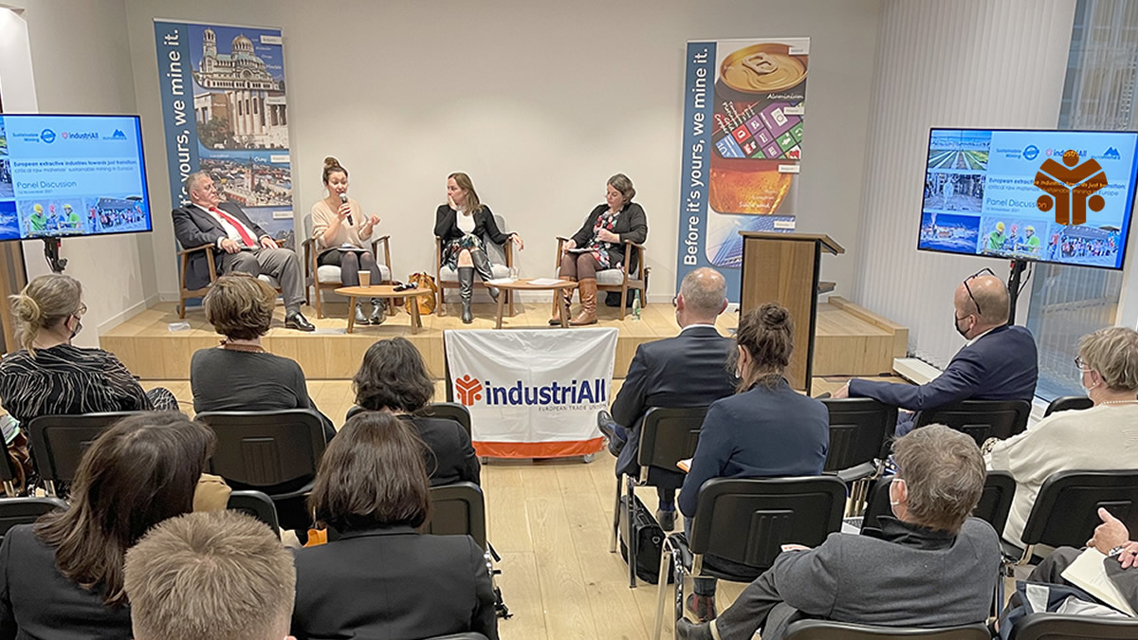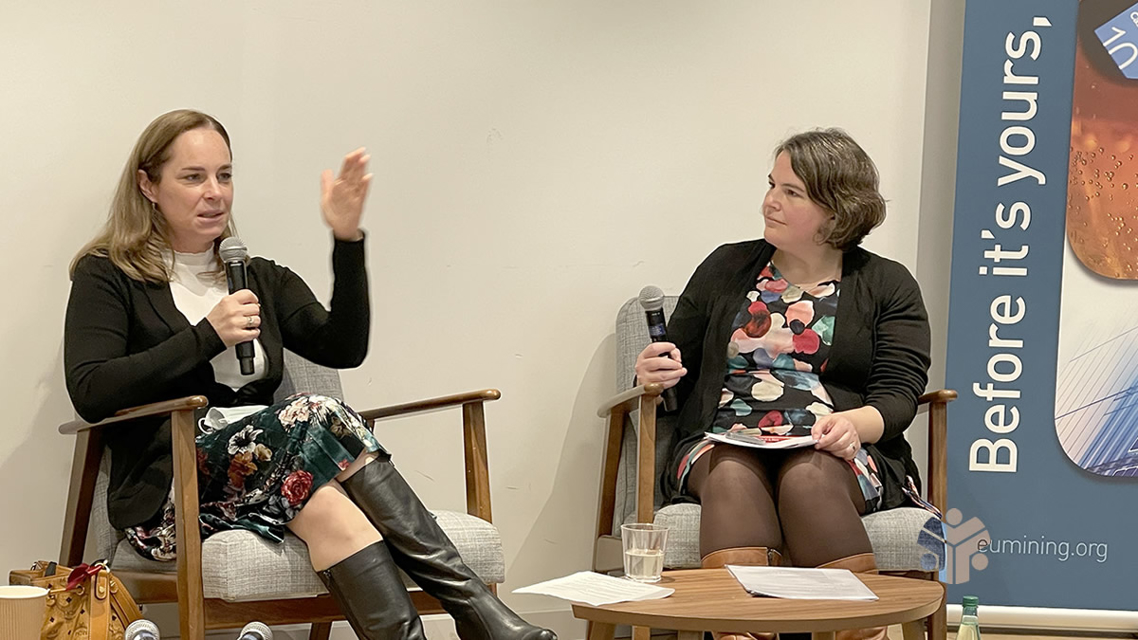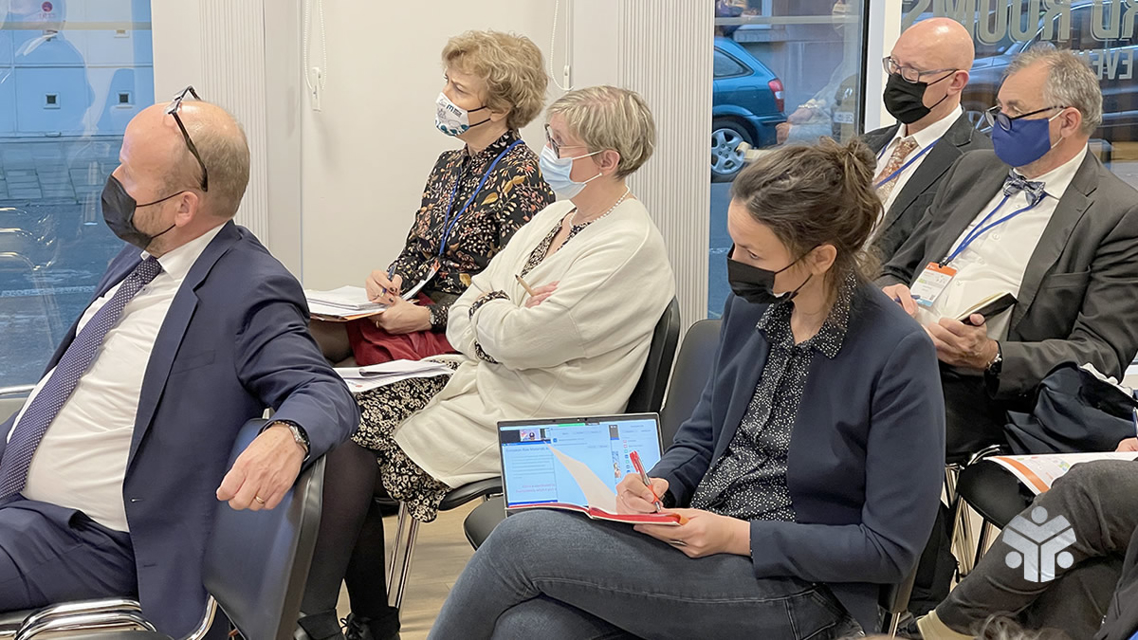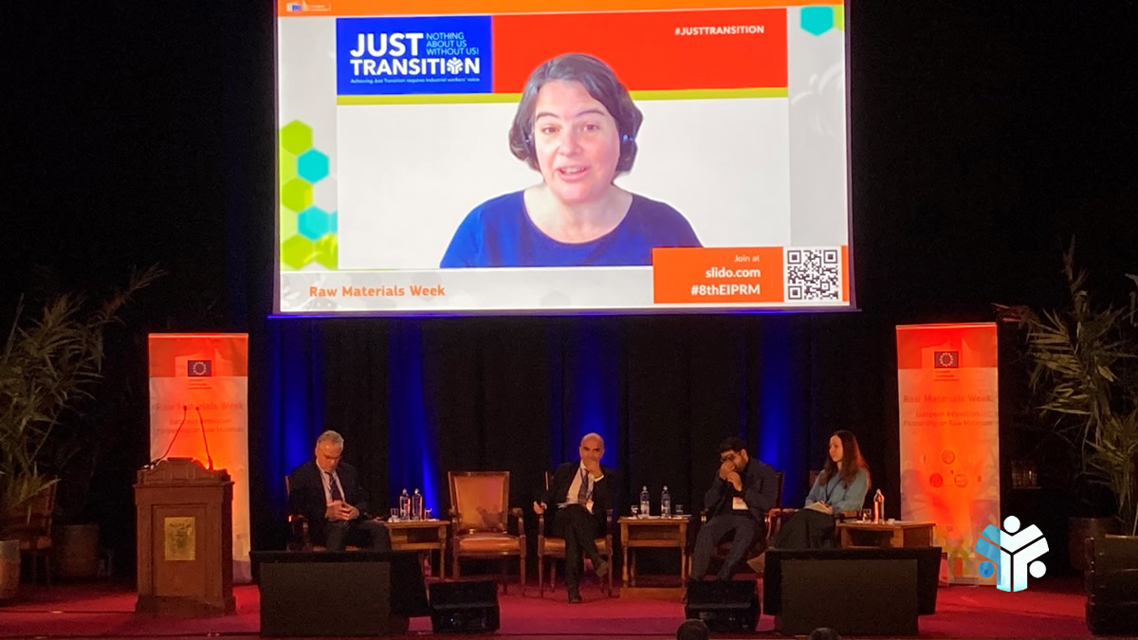If everyone recognises the importance of raw materials, the discussions aimed to tackle the different challenges the sector is currently facing. The recent magnesium shortages show how a coordinated approach and strong anticipation is important for industries and jobs in Europe. Meanwhile, the EU will need up to 10 times more lithium in 2050 for electric vehicle batteries and energy storage, and a doubling of permanent magnets which depend on rare earths by 2030, according to Thierry Breton European Commissioner for Industry speaking on Wednesday 17 November.
IndustriAll Europe took the opportunity to raise its message and policy recommendations during the High-Level Conference of the European Innovation Partnership on Raw Materials on 17 November.
Judith Kirton-Darling, Deputy General Secretary, set out industriAll Europe’s view. She claimed “Inaction is not an option. Trade unions have been calling for years for a European strategy on raw materials, and the developments over the last years – the creation of the European Raw Materials Alliance in particular – are welcome. But what we need is a far more strategic approach, as our chief competitors are adopting, through the development of the secondary raw materials market, investments in research for substitution to reduce our dependencies, and an external agenda on responsible global sourcing with a mandatory human rights and environmental due diligence.”
She added: “But this will not be enough. A sustainable mining agenda for Europe is also a key demand. Raw materials strategies must be part of the Just Transition agenda in Europe, especially for coal regions”.
All this must have a strong social dimension and Judith Kirton-Darling also stated: “Anticipation of change is not only about anticipating the technological change and changes in strategic dependencies, but also the social change. There is also a need for a solid social dimension in this raw materials agenda. This could be a job-rich strategy if we get it right. Green transition must lead to good jobs in the primary and secondary raw materials sectors across Europe”.
Reducing dependencies on strategic raw materials will require improvements in their circularity which also means a far more robust European Circular Economy agenda. IndustriAll Europe insisted among other things on the need to have proper regulatory frameworks. As an example, industriAll Europe is following the work of the European institutions to better regulate the export of waste (Waste Shipments Regulation) in order to help to close the loop of the circular economy and to ensure environmental standards and working conditions in the recycling supply chain in non-EU countries. In that regard, the recent proposal from the European Commission goes in the right direction.
The Raw Materials Week was also the occasion to organise a joint event with Euromines, one of industriAll Europe’s social partners in the sectoral social dialogue in extractive industries. The debate focused on the sustainable mining of critical raw materials in Europe and how European extractive industries can move towards Just Transition. The panel gathered MEPs and different stakeholders from trade unions, industry and NGOs. This was an occasion to highlight what the current challenges of European mining operations are. Among them, the need for a continuous improvement of sustainable mining and a better dialogue with local communities, workers and citizens to build social acceptance.
You can watch the recording of the webinar here
Contact: Andrea Husen-Bradley (press and communication), Sophie Grenade (policy adviser)



